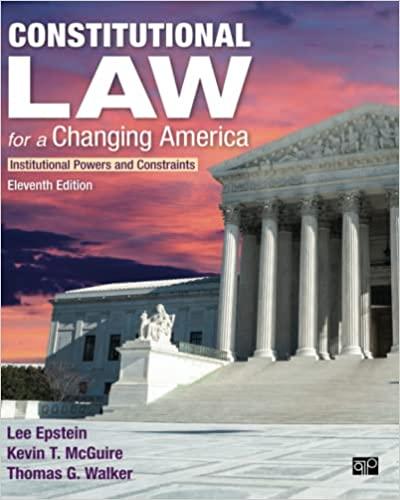Question
In the case Marshall v. Barlow's, Inc. in 1978, the U.S. Supreme Court ruled that the 4th Amendment to the U.S. Constitution required a warrant
In the caseMarshall v. Barlow's, Inc.in 1978, the U.S. Supreme Court ruled that the 4th Amendment to the U.S. Constitution required a warrant for a nonconsensual OSHA inspection. Changes to 29 CFR 1903.4 allows OSHA to obtain warrants without the owner's knowledge under appropriate circumstances, which allows inspections to proceed without advance warning. However, in cases where OSHA shows up at a facility with no prior notice and does not obtain a warrant on an ex parte basis, the owner may require a warrant to be obtained prior to allowing an inspection to occur. Some companies have standing rules to require warrants for all inspections.
Discuss the positive and negative aspects of requiring a warrant prior to allowing any OSHA inspection to occur at a facility
Step by Step Solution
There are 3 Steps involved in it
Step: 1

Get Instant Access to Expert-Tailored Solutions
See step-by-step solutions with expert insights and AI powered tools for academic success
Step: 2

Step: 3

Ace Your Homework with AI
Get the answers you need in no time with our AI-driven, step-by-step assistance
Get Started


